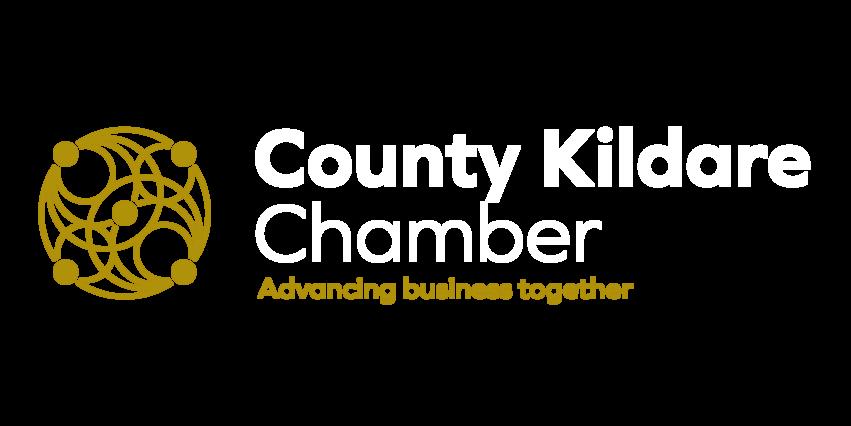

County Kildare Cha 2025 BUDGET SUBMISSION



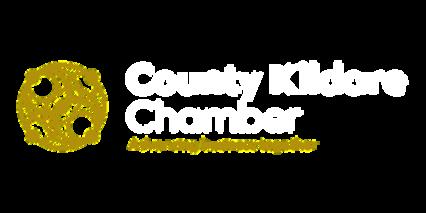
Pre Budget Submission 2025
1. Foreword
The global competition for attracting inward investment is intensifying, with countries enhancing their offerings and marketing strategies for Foreign Direct Investment. Ireland has thrived as one of the most open and globalised small countries, ranking second in the 2023 IMD World Competitiveness Rankings, up from eleventh in 2022.
Looking ahead, Ireland must continually enhance its appeal for both talent and business. While globalisation has benefited Ireland, it also exposes the country to global economic fluctuations. Addressing cost competitiveness, encouraging indigenous business and developing infrastructure for future growth is crucial.
In our 2025 Budget submission, County Kildare Chamber outlines our key priorities to ensure Kildare and the mid-east region continue to be a destination of choice for talent and business investment. We recommend smart policies and investments to enhance sustainability, research, talent attraction, and digital innovation.
Kildare has a prime location within Ireland. Connected to the countries four provincial regions with major road and transport links routing through the county, with Ireland’s fastest growing university located within the County and history of attracting and retaining international talent, Kildare is primed for continued success and development.
Stimulating housing and apartment construction and introducing policies that encourage private investment back into the market must be a top priority in Budget 2025.
This will be crucial to address the housing shortage and support Kildare's growing population.
By continuing to prioritise investment in housing and infrastructure, we can ensure that County Kildare remains a vibrant, sustainable, and competitive region. As global competitiveness for talent and investment grows, now is the time for smart policy decisions to cater to future needs. By doing so, Kildare can maximise future opportunities and strengthen its reputation as a key location place to live, work, and do business.
Mairéad Hennessy President
County Kildare Chamber


This Budget submission has been developed based on the feedback of our membership in Kildare and the Mid- East Region over the last 12 months. We believe Budget 2025 should address our pressing economic growth and development needs. Long term investment in housing, transport, water, energy, and social infrastructure is essential.
We support ongoing capital expenditures to ensure steady development. A balanced budget should avoid quick-wins and focus on broadening the tax base by taxing resource consumption rather than work. Adequate resourcing for state agencies like Planning and Courts is also crucial.
Reflecting on the past year, Kildare businesses faced increased costs and regulations, especially smaller ones, recovering from Brexit, Covid-19, and geopolitical instability. The commitment to reducing EU reporting obligations and implementing an enhanced SME test is a positive step. Moving forward, it is vital these commitments are upheld in Budget 2025.
Future-proofing skills and innovation is critical amidst rapid change, especially with the rise of AI. Ensuring a skilled workforce, pro-business policies, and collaboration between government, industry, and academia will position Kildare, with our strong base in the area as a leader in sustainability and emerging technologies.
Sinéad Ronan Chief Executive Officer
County Kildare Chamber


2. Introduction
County Kildare Chamber, representing an employer base of 400 businesses and over 52,000 employees, is committed to driving sustainable economic growth in Kildare and contributing to national priorities.
County Kildare Chamber is the largest business organisation in the mid-east region of Ireland is the business organisation in Kildare, proactively working to identify and progress developments that are facilitative of economic and sustainable growth.
Given the significant breadth and depth of our membership, and our representation on various bodies at local and national level, County Kildare Chamber constitutes the representative voice for business in Kildare.
County Kildare Chamber is committed to improving the business environment and quality of life in Kildare and the wider region. County Kildare Chamber welcomes the opportunity to comment on Budget 2025, which comes at a time of increased financial pressure and uncertainty for businesses and consumers.
As a business organisation, County Kildare Chamber believes that long term planning for the development of the Country is essential. Our submission for Budget 2025 addresses key challenges facing Ireland, including those presented by housing shortages, skills gaps, climate change, the rising cost of business, and geopolitical uncertainties.
We aim to align our proposals with national objectives while highlighting Kildare's unique position and potential.
We have set out below several broad areas for you to consider within the confines of Budget 2025.

Housing and Planning
Infrastructure and Regional development
Economic Development & Employment
Energy & Climate Action and Sustainability
3. Submission
Kildare is a county with a remarkable array of strengths. According to the 2022 census, it has a population of 246,977, making it the fifth most populated county in Ireland. It experienced an 11% increase over the past six years and is expected to grow by an additional 44,000 people by 2031. The county is home to a significant cluster of multinational corporations, possesses a highly skilled workforce, and offers a high quality of life. Our well-developed infrastructure and connectivity to Dublin—including ports, airports, and digital networks—position us to successfully meet the objectives outlined in the National Planning Framework.
At County Kildare Chamber, our overarching goal is to evolve into a leading Chamber of Commerce that actively fosters economic, social, and environmental progress within our dynamic business community. We are steadfast in our commitment to the United Nations Sustainable Development Goals (SDGs), using them as a foundational framework for our initiatives. In partnership with the Chambers Ireland network, we focus particularly on five critical SDGs:
Goal 11: Sustainable Cities and Communities - We advocate for policies and projects that support sustainable urban development, affordable housing, and improved accessibility, aiming to foster inclusive and resilient communities across Kildare.
Goal 8: Decent Work and Economic Growth - Our activities are geared towards creating an environment that nurtures job creation, equitable employment practices, and entrepreneurship, enhancing economic prosperity and social well-being in the region.
Goal 9: Industry, Innovation, and Infrastructure - We are committed to promoting a culture of innovation, enhancing infrastructure, and spurring investment in cutting-edge technologies. Our efforts are designed to boost industrial growth, stimulate innovation, and cultivate a competitive business environment that benefits the entire community.
Goal 5: Gender Equality - Gender equality is a core principle that informs our actions. We are dedicated to fostering diversity and inclusion, ensuring equal opportunities for all genders, and actively removing barriers to gender equality in both the workplace and broader society.
Goal 13: Climate Action - Through our policy initiatives and collaborative projects, we champion sustainable practices, renewable energy solutions, and environmental stewardship within our business community. We support climate-responsible actions and the transition to a low-carbon economy, aiming to mitigate climate change and secure a sustainable future for all.
Through our 2025 Budget Submission and our continuous policy efforts, we ensure that our activities align with these SDGs, affirming our vision of leading as a world-class Chamber of Commerce that champions economic advancement, social wellbeing, and sustainability throughout Kildare.
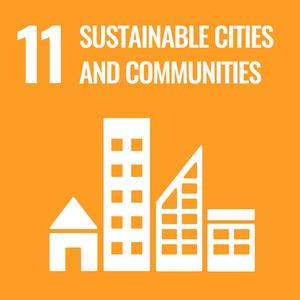
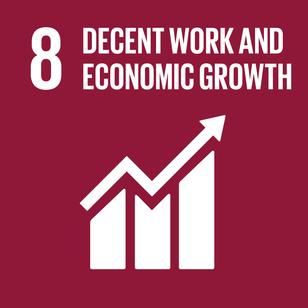
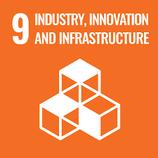
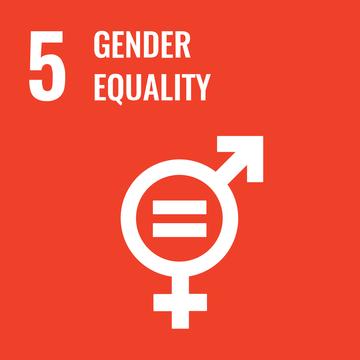
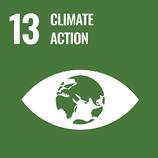
4. Housing and Planning
A recent survey of our membership identified housing availability as the number one issue affecting business competitiveness in Kildare over the past 12 months. [1]
Low levels of residential construction during the post 2008 recession in Ireland, has not kept pace with the growing levels of employment and population in the mid-eastern region. Ensuring the housing needs of talent are met is crucial in maintaining Kildare as an attractive location for business, as the residential preferences of talent play a pivotal role in attracting investment and supporting business expansion. In this context, housing must be viewed as a crucial economic enabler.
Inward migration has brought numerous benefits to Kildare, introducing increased diversity and supporting significant social change in recent years. As Kildare’s population continues to grow, spurred by its blend of urban and rural dynamics, addressing and enabling housing delivery must remain the top priority for government efforts. This focus is essential not only for supporting current economic activities, particularly in the northern IT-centric cities like Naas, Maynooth, Celbridge, and Leixlip, but also for fostering sustainable development throughout the southern agricultural, equine and logistics bases of the county.
The average house price in Kildare in Q1 2024 was €371,250, up 3% on the December 2022 average of € 361,250. [2] This is a multiple of 8.4 times the average industrial wage of € 44,202.
[1] https://www countykildarechamber ie/wp-content/uploads/2024/04/Chamber-MembershipSentiment-Report-Q1-2024 pdf
[2] https://www independent ie/life/home-garden/how-much-is-your-house-worth/kildare-northhouse-prices-for-2024-rise-by-3pc-due-to-shortages/a875626045 html
According to the National Competitiveness and Productivity Council’s (NCPC) in their recent May report, “At present, the housing market effectively undermines the self-reported wellbeing of many persons (and households) and can de-limit their experienced quality of life. Addressing labour market constraints is crucial for Ireland’s ability to meet targets under Housing for All, as well as retrofitting and emissions targets under the Climate Action Plan. [3]
In a globalised world, housing costs impact on the cost of doing business through wage effects as well as indirectly through the impact on general price levels. This, in turn, is reflected in the difficulty of recruiting skilled labour internationally and poses problems for those renters expressing dissatisfaction with their housing. The said report continued stating “It is also a capacity constraint representing a risk to Ireland’s international competitiveness. The consequent impact – via both upward wage pressures and staffing challenges – present particular difficulties for the domestic SME sector.”[4]
[3] Bulletin 24-3 Competitiveness and the Housing Market in Ireland - Competitiveness
[4] bulletin-24-3-competitiveness-and-the-housing-market-in-ireland pdf

Recognising housing as a critical national issue, to address this acute shortage we propose:
Fast track planning for high-density developments near public transport hubs
A continued focus of the delivery of the Housing for All strategy
An ongoing and comprehensive review of the NPF unit targets
Incentives for conversion of vacant and derelict properties to residential use in town centres
Croí Conaithe (Town) Scheme review, introduction of staged payments
State financial aid to brownfield developments
Renew the Derelict Sites Act 1990
Tax Measures
Landlords (Corporate & Individuals) - introduction of a standardised tax on rental income.
Introduce BIK exemption for employer provided accommodation.
Tax relief for accommodation constructed or purchased by employers and rented to employees e.g., introduce industrial building allowances.
Tax Relief for Employer Developed Housing
Make the rent tax credit introduced in Finance Act 2022 permanent.
Extend the temporary Mortgage Interest tax credit beyond 2023.
Capital Gains Tax rate should be reduced from 33% to 20% to incentivise the release of residential property back into the market.
Extend CAT Business Property Relief (BPR) to include active property rental businesses.
Revised Housing Targets
County Kildare Chamber welcomes the latest review of the National Planning Framework and will take part in the consultation process on behalf of our membership. The current plan from 2023-2029 gives a target figure of 9,144 housing units for Kildare. This is 13,000 fewer homes than were permitted under the previous development plan up to 2023. Census data from 2022 shows Kildare’s population grew by over 11% in the sixyear period between 2016 and 2022. Current targets are based on Census 2016 data and are now defunct.
Activation of vacant & derelict property
The activation of vacant and derelict property is crucial to increasing the housing stock. As per Census 2022, there are currently 4,797 vacant properties within Kildare.[5] The introduction of the Vacant Home Tax in Finance Act 2022 is welcome. It is important that Revenue actively police the collection of this tax to ensure that is achieving the policy aims envisaged with its introduction. Owners need to be required to register vacant properties and an annually increasing lien should apply to such properties, regardless of use. This should be complemented by reform of the Compulsory Purchase Order system to include Compulsory Sales Orders.
Encouraging adaptive reuse and repurposing of vacant properties can contribute to their activation most important is the streamlining of both the regulations and processes for changing the use of existing properties.
[5] Vacant Dwellings Census of Population 2022 Profile 2 - Housing in Ireland - Central Statistics Office
Croi Conaithe
In its current format, the Croi Conaithe grant is only paid to homeowners after they have completed works to their property and an inspection has been carried out. The lack of coherence between fireregulations and other planning requirements is preventing the repurposing of above street level properties to housing. County Kildare Chamber believes a review of the scheme and the introduction of a staged payment scheme will alleviate this problem, whilst providing peace of mind to scheme applicates and prospective homeowners.
Brownfield Sites
Promotion of Brownfield redevelopments support the viability of urban developments that already have access to public services. Renewal of the Derelict Sites Act 1990 must be used to strengthen its elements to incentivise infill and brownfield construction. County Kildare Chamber believes by
providing financial support to brownfield projects, key growth towns and urban centres can be revitalised in a sustainable way, stimulating local economies and protecting green spaces. Brownfield sites often have existing infrastructure in place, such as roads, water supply, and public transportation networks.
To address the cost disparity between brownfield and greenfield developments, providing up-front grant aid and financing assistance can make high-density projects in town centre and urban areas financially viable.
By incentivising brownfield redevelopment through financial assistance, government can encourage sustainable urban growth, preserve green spaces, and foster vibrant, resilient communities. The result is a more balanced and sustainable approach to land use and development.
Private Landlords
According to the Society of Chartered Surveyors, over 40% of properties being put on the market for sale since January 2024, were landlords selling an investment property.[1] It appears that landlords, owning a small number of residential properties, no longer consider it to be economical to continue to rent out their properties. We welcome the initiatives introduced in Budget 2024 for private landlords, however with landlords continuing to exit the market in Ireland, we believe more needs to be done to increase the number of rental properties in circulation.
Consideration needs to be given to further reforms and the introduction of a standard tax rate for rental income. This should be linked to properties remaining in the sector for longer periods of time and to energy efficiency upgrades.
For all landlords, Case V deductibility rules should be brought into line with Case I deductibility rules to avoid situations where genuine letting activity costs are not viewed as deductible for tax purposes. Similar rules currently exist in Germany. To remain competitive and continue attracting a mobile global investment in the highly competitive world, we need to ensure that our Case V deductibility rules are brought into line with Case I deductibility rules in the next Budget.
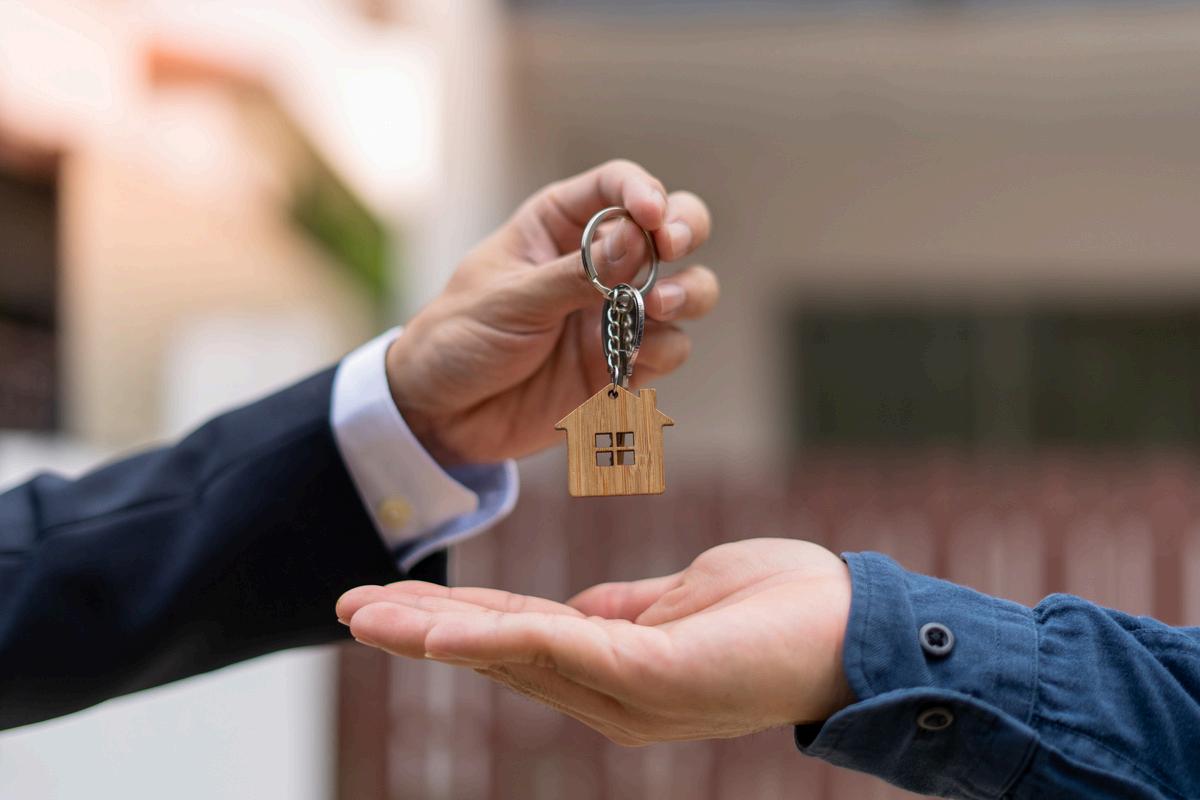
[6] The average price of rents around Ireland as they increase once again (businessplus ie)
Retrofitting tax incentives for landlords should be enhanced to improve and maintain energy efficiency in rented accommodation. Introduce tax incentives for landlords to retrofit and use vacant and
Pdeteriorating dwellings and reuse of existing buildings (e.g., over-the-shop).
Reform Capital Gains Tax
Ireland’s Capital Gains Tax rate of 33% is high by any international comparison and consideration should be given to reducing same. In particular, given the lack of available rental accommodation, consideration should be given to whether CGT can be used as a mechanism to (1) incentivise new landlords into the market and (2) provide those landlords who are currently supplying rental property with an incentive to continue to do so.
Reduce the rate of Capital Gains Tax from 33% to 20% to incentivise the release of residential property back into the market. CGT rollover relief should also be reinstated and available to businesses when they dispose of property and reinvest the sale proceeds in a replacement property to be used in the trade of the enterprise.
Planning Regulation
The Planning and Development Bill, a cornerstone of Ireland’s future. The Bill originally published in November 2023, passed the Dáil stage in midJune 2024. However, it will not proceed to Seanad and Final stage approval until the Autumn.
County Kildare Chamber, are urging for the immediate enactment of this crucial legislation without delay and the initiation of a programme for reform.
Without urgent delivery of more rapid planning processes it is increasingly hard to see how Ireland can meet its climate commitments and ambitions and deliver Project Ireland 2040. Further, without rapid planning reform, Ireland is at risk of stifling economic growth and development, undermining national infrastructure plans. Therefore, progressing and enacting the Planning and Development Bill without delay is essential,
along with implementation of any additional related Acts and regulations that are needed to give rise to the effective and clear reform of the Irish planning system.
Reforming and revolutionising Irelands planning landscape by:
1.Streamline the Planning Regime with Firm Guidelines
Streamlining the planning regime is crucial to reduce uncertainty for key infrastructure investments. By simplifying procedures to fast track critical infrastructure
Introducing firm guidelines throughout the planning process
Narrowing the objection timelines to aid decision-making efficiency, and prevent unnecessary delays
2.Local Authority One-Stop-Shops
Streamline the planning process for change-of-use construction projects and above-the-shop conversions. Offer expert guidance and advice to individuals on how to successfully apply for the Vacant Property Refurbishment Grant.
By centralising these services, authorities can efficiently facilitate sustainable urban development practices and ensure that climate considerations and social inclusivity are integrated into urban planning decisions.
3.Living Cities Initiative
Extended this program for long-term stability out to 2030. Expand scope to include long term vacant commercial properties-built post 1915.
Broaden Special Regeneration Areas to unlock housing potential and bring more potential housing stock under the LCI.
Residential relief should be extended to all works on any building which qualifies for LCI.
5. Infrastructure and Regional Development
Industry and infrastructural development are crucial to Ireland's continued growth. To achieve sustainable industrialisation and innovation, several key points need to be considered:
1.Diversification of the Industrial Base:
While Ireland has been successful in attracting multinational companies in sectors like information technology and pharmaceuticals, there is a need for a more diverse and sustainable industrial base, like AI and robotics, quantum computing, digital health and space technologies. By diversifying our industrial base, we safeguard against economic shocks. Over-reliance on specific sectors poses risks to the economy and job market, especially during downturns. Fostering homegrown industries can lead to productivity improvements, expanding Ireland’s global trade footprint.
2.Development of Sustainable Infrastructure:
Ireland's transportation, energy, water, and digital infrastructure require sufficient funding to ensure sustainable and resilient development. The current backloading of projects in the National Development Plan, with most scheduled for completion in 2030, may lead to competition with other priorities such as housing and inflation within the construction sector due to capacity constraints. Adequate and timely investment is necessary to meet infrastructure needs. The cost of these delays leading to construction sector capacity constraints and potential economic growth stunt. The solution
should include:
Front loading infrastructure investments
Balance short term costs against long term economic benefits
Build for tomorrow, today.
Through timely infrastructure investment, we lay the groundwork for decades of prosperity in Kildare.
Connectivity and Digitalisation:
Emphasising connectivity and digitalisation is essential. Investment in Kildare's digital infrastructure, ensuring high-speed broadband coverage across the county is crucial. Projects like the National Broadband Plan support the expansion of remote and flexible working, promoting economic growth and innovation. The benefits associated with this include:
Establishment of innovation hubs across the county
Remote working unlocking talent, regardless of location.
Economic growth without geographic limits
Transition to a Circular Economy:
This shift requires a focus on waste management, resource efficiency, and sustainable manufacturing practices. Embracing circular principles can lead to economic and environmental benefits.
By focusing on these aspects, Ireland can achieve sustainable industrialisation, innovation, and increased productivity while ensuring a resilient and environmentally balanced future.
Key Asks:
The establishment of an independent agency to lead and develop medium-long term infrastructure policy within Ireland
Accelerated delivery of the electrification expansion of the Maynooth Dart+ West rail line
Introduction of a flexi tax saver ticket for hybrid workers (3day)
Tax incentives for hybrid/electric vehicles such as super deductions and accelerated capital allowances
Accelerated rollout of fast charging points nationwide for EV’s, with particular focus on regional areas.
Independent Infrastructure Agency for Long-Term Planning
We welcome the introduction of the Infrastructure, Climate and Nature Fund under Budget 2024, and the Governments commitment to supporting the long-term sustainability and development of our key infrastructure projects.
However, long-term planning in Ireland, particularly in County Kildare, continues to face challenges due to the nature of our governmental and political systems. Operating within a parliamentary democracy, where governments may change every five years following general elections, Ireland experiences shifts in political power that can disrupt the continuity of infrastructure planning. Additionally, the fragmented governance structure, characterised by multiple departments and agencies with divided responsibilities, complicates the coordination and alignment of long-term infrastructure objectives.
County Kildare Chamber proposes the establishment of an
independent state agency focused exclusively on the medium and long-term strategic and infrastructure planning and policy within Ireland. This agency would operate under a clear mandate and objectives defined through legislation or government directives. It would develop and implement long-term infrastructure plans that are in sync with national priorities and adapt to emerging trends, technological advancements, and sustainability considerations.
Accelerated Delivery of Dart + West and South West Lines
In the context of future residential or commercial development, it is critical that infrastructure, particularly public transportation, is developed concurrently or in advance to manage the expected rise in demand.
Maynooth is a town with significant potential for further development, as a university town, with a large population and increasing employment prospects, with a large cohort of FDI and indigenous companies investing in the area. However, for the potential to be unlocked, all stakeholders need to be working together, with infrastructure keeping pace with development. Celbridge, Hazelhatch and Leixlip are developing commuter towns, with growing populations and increased social and economic capabilities. The development and implementation of the Dart+ South West line is crucial for the ongoing growth of the north of Kildare.
Specifically, there is a pressing need for the accelerated electrification and expansion of the Maynooth Dart+ West rail line, alongside setting a timeline for developing an all-electric rail network. This initiative would support a reduction in carbon footprint and dependency on private car travel, fostering a healthier, more sustainable approach to transportation.
Revisions to the TaxSaver Commuter Ticket Scheme
The Chamber also advocates for modifications to the TaxSaver Commuter Ticket Scheme to make it more adaptable to modern working arrangements. While the scheme is an effective way to incentives commuters to use public transport and currently offers substantial savings on public transport costs for workers, it does not cater well to those who now practice hybrid working— typically commuting 1-3 days per week.
The introduction of a flexi tax saver ticket for hybrid workers would be a welcome measure to support cost of living adjustments, whilst also allowing for more flexible and economic use of public transportation.
Electric Vehicles (EV’s) and Infrastructure
County Kildare Chamber encourages Budget 2025 to foster the wider adoption of electric and hybrid vehicles through:
Enhanced tax incentives, such as super deductions and accelerated capital allowances for hybrid/electric vehicles. Reduction in Vehicle Registration Tax (VRT) and motor tax for these vehicles.
An increase in the limit on capital allowances for electric vehicles (EVs) to make them a more attractive option for businesses and individuals.
Consideration of a competitive VAT rate for electric and hybrid vehicles including bicycles.
Extension of the benefit-in-kind exemption for electric vehicles post the expiry of the current scheme, and a review of the BIK treatment for vehicles provided by car-sharing organisations.
Additionally, there is a significant need to accelerate the rollout
of a national fast charging network, focusing on regional areas outside of Dublin, while also enhancing public transport facilities in urban areas.
Invest in Grid Infrastructure
Reinforce and upgrade our grid infrastructure through frontloaded investment.
Grid reinforcements and upgrades need to scale to meet anticipated demand in future years based on expected population growth and increasing demands from industry. So much of our necessary infrastructure development over the next 15 years is dependent on our continued strong investment in grid infrastructure. We should also utilise the REPowerEU guidance on ‘overriding public interest’ in order to deliver the grid upgrades and reinforcements needed to support high capacity onshore and offshore energy networks.
Invest in Water Infrastructure
To ensure sustainable supplies of clean water into the future and adequate waste water treatment, we must increase investment in water infrastructure with the commitment of a multi-annual funding structure. Additionally, support the delivery of the Eastern and Midland Regional Water Supply Project and the Greater Dublin Drainage Project.
We should provide additional investment for water infrastructure and grant state bodies the powers to finance such investments through land value capture. Additionally, we need to ensure the delivery of large-scale national water and waste water projects, which are essential in supporting our national economic development and the delivery of increased housing targets. Such investment will bolster the resilience of our water infrastructure
Invest in Water Infrastructure
To ensure sustainable supplies of clean water into the future and adequate waste water treatment, we must increase investment in water infrastructure with the commitment of a multi-annual funding structure. Additionally, support the delivery of the Eastern and Midland Regional Water Supply Project and the Greater Dublin Drainage Project.
We should provide additional investment for water infrastructure and grant state bodies the powers to finance such investments through land value capture. Additionally, we need to ensure the delivery of large-scale national water and waste water projects, which are essential in supporting our national economic development and the delivery of increased housing targets. Such investment will bolster the resilience of our water infrastructure for future growth and development.
Development of Inter/Intra Urban Transport
The Chamber calls for the development of robust inter-urban and intra-urban public transport networks, alongside investments in the urban built environment to promote local active transport networks. This would extend the utility of public transport and facilitate easier movement within and between growth towns/cities such as Naas.
Concurrently, feasibility studies and cost-benefit analyses should be initiated to explore the enhancement of rail links under the National Development Plan, ensuring that infrastructure developments keep pace with urban and regional growth.
Sustainable Energy Transition
This involves increasing investment in bio-methane vehicles and electrifying trains and buses. Additionally, we should invest in appropriate infrastructure to support the transition of Heavy Goods Vehicles (HGVs) to low-carbon fuel options like Bio-CNG.
Furthermore, we can expand the usage of Green Hydrogenfuelled buses across cities, towns, and intercity fleets. By promoting sustainable fuel alternatives, we actively contribute to reducing emissions and fostering a cleaner and greener transportation sector.
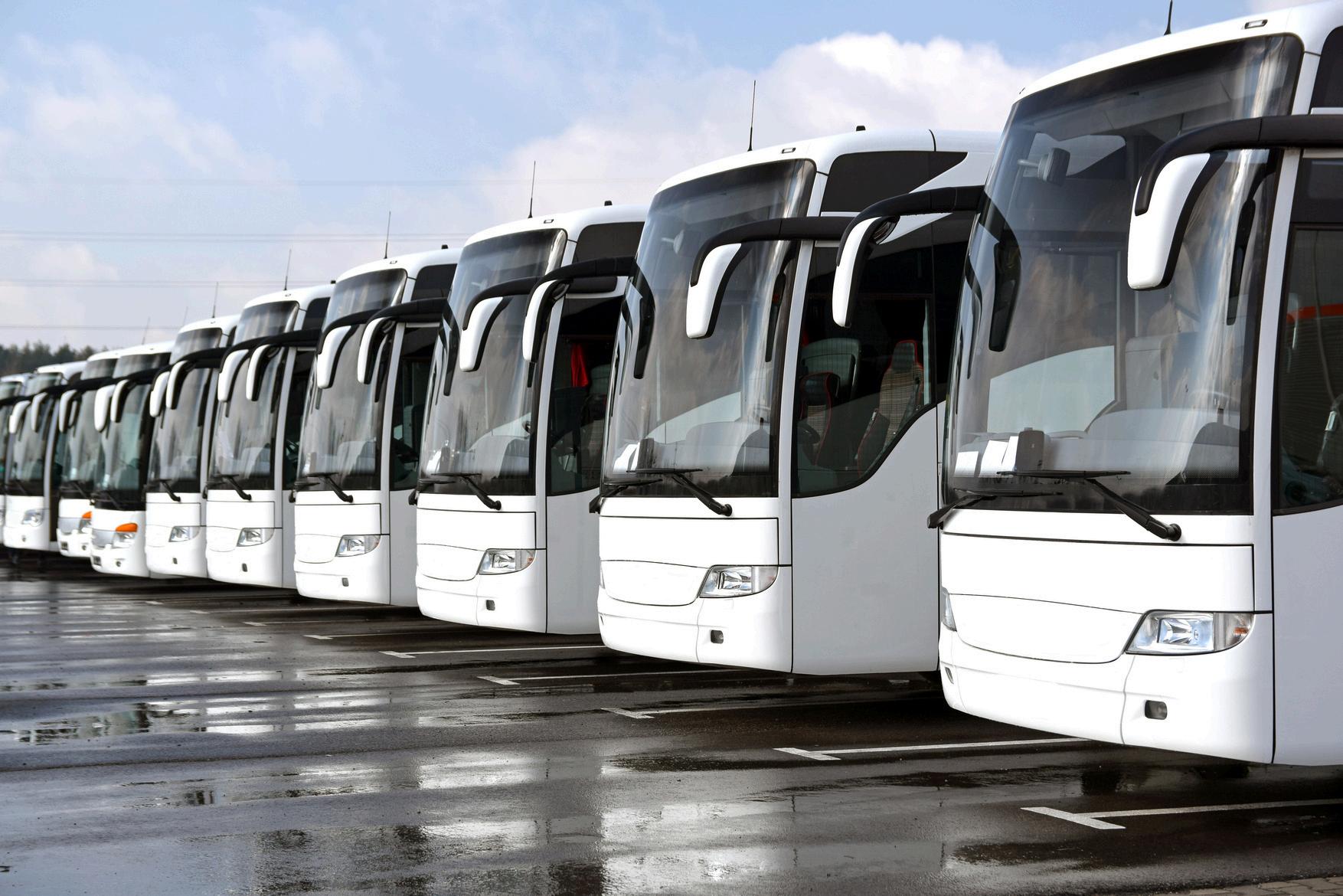
6. Economic Development & Employment
Kildare, as a key commuter county with strong connections to major transportation hubs, is crucial to Ireland's national economy. The county hosts numerous multinational and domestic companies employing a highly skilled workforce and enhancing the region’s international competitiveness and economic growth. To sustain this momentum Budget 2025 to foster an environment supporting high-quality jobs creation across Kildare.
Current Economic Landscape
In 2023, Kildare accounted for over 55% of IDA employment in the Mid-East region through Foreign Direct Investment (FDI), and more than 34% of Enterprise Ireland’s regional growth was concentrated in the county. This translates to 12,000 people employed through IDA supported companies and 9,315 through Enterprise Ireland supported clients.
Challenges
Despite record employment levels, Kildare faces significant challenges. As Kildare continues to draw new and expanding economic opportunities, with Ireland experiencing record employment levels, significant challenges regarding skills and talent availability have begun to surface. According to the County Kildare Chamber’s Q2 2023 business survey, nearly 50% of employers reported difficulties in filling specific skills gaps within the last 12 months.[7] [7]
These challenges are impacting Kildare’s appeal as an attractive business location and are eroding its competitiveness. Given the growing demands on the labour force, it is crucial to implement several measures designed to alleviate pressure and particularly encourage women to re-enter the workforce, supporting both regional and national economic resilience.
To address skills shortages and support national competitiveness, we recommend:
1.Workforce Development
Increased investment to increase female participation in the workforce.
Expand investment in childcare services, and early education infrastructure.
Offer dedicated supports for female entrepreneurs. Dedicated supports should be offered to women seeking to open business.
Simplified work permit process.
Establish of a Kildare Skills Forum to address local skills gaps. Expansion of apprenticeship programs in key sectors, including construction and green technologies.
Funding for English language courses and English for Business courses.
Provide industry specific training i.e., tech, non-tech, green.
2.Tax
Reform
Supports for households and families.
Raise the 40% tax band entry point to €45,000
Extend mortgage interest relief to the 2024 and 2025 tax years.
Support SME sector with pro-growth tax policy e.g.:
Simplify and enhance the Employment Investment
Incentive Scheme (EII)
Amend CGT rules to encourage SME investment.
Extend Special Assignee Relief Programme (SARP) to Irish indigenous businesses.
Extend the Start-Up Relief for Entrepreneurs to individuals previously self-employed.
Enhance CGT retirement relief i.e., the planned €10m cap should be revisited.
Streamline access to finance for SMEs.
Tax incentives to support SMEs in AI adoption.
Stimulating jobs creation
Introduce PRSI caps e.g., reintroduce earnings cap for employers and employees.
Introduce PRSI deferral for new hires.
Reform the Key Employee Engagement Programme (KEEP) scheme e.g., disposal of shares would qualify for entrepreneurs’ relief, increase lifetime limit of €300,000.
Introduce incentives for employer developed accommodation.
Tax simplification
Establishing an Office of Tax Simplification
Simplifying VAT and PAYE compliance for SMEs
Simplify R&D documentation for startups.
Encourage Investment
Reduce CGT from 33% to 20% for active Irish businesses.
Reintroduce indexation relief to ta only “real” gains.
Competitiveness
Simplifying the tax code
Adopting a territorial tax regime
Enhancing the R&D tax credit and Knowledge
Development Box
Improving the (SARP) e.g., open to new hires.
3. Expansion of Apprenticeship Grant Scheme
The County Kildare Chamber calls for an increase in the Employer Apprenticeship Grant from €2,000 to €8,000. Employers lead Ireland’s apprenticeship programs, with approximately 27,000 apprenticeships currently active—a number that has been rising over the past four years[8].
To meet our construction demands and the skills retraining necessary to future-proof our green energy and technology sectors, this expansion is critical.
4.Enhancing Access to Early Learning and Childcare
In Budget 2024, we welcomed the universal subsidy rate increase from €1.40 to €2.14 per hour from September 2024. However, this needs to go further to enhance access to and affordability of childcare. Many families are still forced to weigh up the cost of childcare relative to their take home pay. Increasing the NCS subsidies would support more parents to remain in the workforce. This support should extend to the establishment of more breakfast clubs and after-school childcare programmes across all regions, enabling working parents to access quality care for their children. By investing in the necessary infrastructure and expanding childcare services, we can better support working parents and ensure that children have access to high-quality early learning and care facilities.
Increased Core Funding
The provision of high-quality and affordable childcare is contingent upon service providers receiving adequate support in order to meet employee pay and conditions, overhead costs and other related costs, particularly as fee freezes have been in place over the past two years for providers in receipt of core funding.
[8] Record number register as apprentices, with stigma over ‘earn and learn’ options fading – The Irish Times
Providing adequate core funding ensures that providers can grow their business, recruit and retain qualified employees, and deliver a cost-effective service for both parents and providers.
Investing in Early Learning and Childcare
While the commitments that have been made over the past two years have been very welcome, it would be positive to see a programme of investment for the coming years to ensure that the progress which has been made to date can be sustained and expanded upon. Programmes like the ECCE, NCS and AIM have all enabled children to benefit from quality early years and school age childcare provision. These initiatives require sustainable funding and a commitment to ongoing improvement.
5. Support for Women in Business
It is essential to introduce specific entrepreneurial training and funding opportunities targeted at women and other disadvantaged groups. Women who participate in entrepreneurial training programs should receive dedicated support to help them start their own businesses aiming to increase the proportion of women led businesses in Kildare.
6. Work Permit Reform & Simplification
The announcement earlier this year that a single visa/permit process will be initiated is very welcome and we would call for this to be rolled out without delay, as such a measure is important in reducing the administrative and cost burden faced by businesses looking to recruit from outside Europe. By streamlining these processes, we can also create a more inclusive workforce that welcomes diverse skills and perspectives.
7. Funding for English Language Course
The introduction of funding for English Language and English for Business course would be an advantage for employees seeking
work in Ireland. We would envision this to be a joint program between an employer, supported by Government, and would accelerate learning and communication efficiency.
8. Construction Skills Shortages
Skills shortages in the construction sector are negatively impacting our ability to deliver on essential infrastructure, which will inhibit our economic growth in the long run. Targeted training, apprenticeships and community outreach on the opportunities available is essential to build resilience and capacity in the sector. The Chamber would see partners such as KWETB as a key body in the offering and developing of course material for future areas of need, ie renewable technologies; in this case heat pumps to retrain the heating trades and up-skill their knowledge without the need for manufacturer training. This could be a fast-track apprentice type arrangement or a post apprentice qualification.
9. Tax Incentives and Reforms
Increase of 40% Tax Band to €45,000
Ireland’s current tax structure presents a significant challenge to workforce motivation and economic growth. The entry for the higher tax band falls below the average industrial wage, creating a disincentive for workers to pursue career advancement or additional training. This misalignment not only stifles individual ambition but also potentially hampers national productivity and innovation.
The County Kildare Chamber suggests reforming the personal tax system to encourage individuals to reach their full potential and ease the burden on middle-income earners by raising the entry point for 40% income tax rate to €45,000. Moreover, it would create a more favourable environment for workers to seek
promotions and invest in their skills, ultimately benefiting both individuals and businesses.
Employment Investment Incentive Scheme (EIIS)
Key issues impacting SMEs’ ability to scale and grow include access to adequate finance and a skilled workforce. The personal income tax system can significantly contribute here with targeted tax incentives and reliefs.
EIIS holds significant potential for driving SME growth in Ireland, but its current implementation falls short of its intended impacts. By simplifying the application process, clarifying eligibility criteria, and potentially increasing the tax relief offered, the EIIS could become a powerful tool at unlocking a new wave of private investment in promising Irish businesses.

Reform of KEEP
A comprehensive review of the KEEP scheme to make it more effective is timely and crucial.
Conducting a detailed review of the programme is important in ensuring that KEEP remains an effective tool for attracting and retaining key talent in innovative enterprises. The accessibility of KEEP is important for businesses as a means of optimising financial efficiency and improving cash flow management for start-ups or growing enterprises. This could lead to a more vibrant ecosystem of innovative companies, driving Ireland’s position as a hub for cutting edge industries.
PRSI Employer Deferral
A PRSI deferral for employers regarding new joiners should be considered to offset the costs of integrating employees into the workplace, particularly in a tight labour market. By offsetting the initial costs of integrating new employees, this measure could stimulate job creation, particularly beneficial for SMEs and startups. This deferred payment would become due after 12 months of employment, with anti-avoidance measures to ensure proper use striking a balance between providing meaningful support to employers and protecting the integrity of the system.
Capital Gains Tax
The County Kildare Chamber advocates for a reduction in the Capital Gains Tax rate from 33% to 20% for investments in active Irish trading businesses to boost investment., This substantial reduction, combined with the reintroduction of indexation relief, would make Ireland a more attractive destination for both domestic and foreign investment.
By ensuring that only ‘real’ gains are taxed, this reform could encourage more long term, productive investments in Irish businesses, potentially leading to increased economic activity, job creation, and innovation.
System of Taxation
The move to a global minimum effective tax rate under Pillar Two presents Ireland with a unique opportunity to overhaul its tax system. Reviewing and re-organising its existing schedular system and to widely repeal the higher 25% tax rate for non-trading income (save, potentially, for certain transactions). The historical rationale for multiple rates was to protect the integrity of the 12.5% rate of tax, which only applied in respect of trading arrangements.
However, with the introduction of the Pillar Two minimum tax, this distinction becomes less relevant for companies within its scope and there is now no need for such a dual system in respect of companies that are within the scope of Pillar Two. Simplifying this system could reduce complexity for businesses, potentially making Ireland a more attractive location for international companies.
The review of the 33% Capital Gains Tax (CGT) rate on business assets is another crucial aspect of this proposed reform. As one of the highest in Europe, it currently serves as a disincentive to companies for situating certain assets in Ireland. This high rate potentially limits job creation, functional expansion and wider investments that could otherwise benefit the economy. This fact that this rate has remained unchanged since the global financial crisis suggests that a review is long overdue.
Applying the headline corporate tax rate to such gains could
significantly increase business asset mobility leading to more dynamic business ownership structures and fostering increased innovation.
9.Innovation and digitalisation
To boost Kildare's innovation ecosystem and support national innovation goals, we suggest:
R&D Tax Credit Improvements
The present method of applying the R&D Tax Credit uniformly, is disadvantaging smaller companies by not considering the size of the claimant companies which is counterintuitive to fostering innovation across the entire business spectrum. This serves as a barrier to benefiting from this important tax relief. Smaller companies lack both the expertise and the resources to maintain records of their expenses and procedures to the level that larger corporations in highly regulated industries, such as life sciences and financial services, can achieve.
Nevertheless, they are subject to the same financial scrutiny. Therefore, if the documentation demands were less onerous and resource-intensive for startups and SMEs there would likely be a higher rate of adoption of the R&D Tax Credit by them leading to a more diverse and resilient innovation ecosystem, with breakthroughs and advancements coming from companies of all sizes, not just large corporations.
Collectively, these reforms represent a comprehensive approach to enhancing Ireland’s economic competitiveness addressing key challenges in areas such as talent retention, job creation, investment attraction, and innovation stimulation.
AI Innovation for All Businesses
Adopting developing and emerging technologies, particularly in the field of AI, offers many potential benefits and opportunities for Irish businesses of all sizes. However, it is traditionally bigger enterprises that can capitalise on these opportunities first. Regulation in this space is likely to be rolled out from an EU level over the coming years with the passing of the AI Act in March of this year. In order to ensure a just transition, smaller businesses need supports and guidance on what they can do to adopt new technologies to enhance their operations.
AI Innovation Hubs and Research Centres
The research and innovation ecosystem referenced in the National AI Strategy is aimed at fostering connections between industry, research, and academia to ensure that businesses and entrepreneurs developing AI have access to the necessary support systems to utilise AI. This can be done by developing AI innovation hubs and research centres that bring together researchers, startups, and established companies to collaborate on cutting-edge projects.

7. Energy, Climate Action and Sustainability
County Kildare Chamber has long been a vocal advocate for sustainability in the region, establishing a Sustainable Business in January 2024 with the aim of providing our members, especially SMEs, with the tools and knowledge to embrace sustainability while remaining cost-effective. In March 2020, the Chamber, along with Chambers Ireland and ICC Ireland, committed to a new charter supporting the UN Sustainability Goals (SDGs), particularly focusing on the Sustainable Cities and Communities Goal and the Climate Action Goal.
Ireland's geographic advantages offer significant potential for generating renewable electricity from sources such as onshore and offshore wind, solar, and wave/tidal power. This capability positions Ireland, and specifically Kildare, to not only achieve energy self-sufficiency but also to consider energy export opportunities. Surplus renewable energy could facilitate additional initiatives, including the production of green hydrogen and other renewable fuels.
According to estimates by the International Monetary Fund (IMF), moving to 80% renewable electricity by 2030 will cost Ireland €20billion[1]—equivalent to 5% of its GDP—over the next decade in climate-related infrastructure and mitigation efforts. Utilising surplus green energy for export or the production of renewable fuels could significantly help in offsetting the investment costs needed for these efforts.
[9] What Ireland needs to do to become a leader in financing renewable energy – The Irish Times
It is essential to encourage investment in green infrastructure and technology, ensuring that tax regulations are clear and conducive to growth. The Sustainable Finance Roadmap, unveiled in October 2021 as part of the "Ireland for Finance" strategy, highlights the crucial role of private finance and the Irish financial services sector in meeting these investment requirements. Tax measures should be designed to foster a conducive environment for sustainable finance, promoting its expansion and attracting further investments.
By creating a leading environment for sustainable development, Ireland can boost and attract investments in green infrastructure and technology. This strategy will not only support the transition to a low-carbon economy but also help achieve Ireland's emissions reduction targets and establish the country as a leader in sustainable growth.
Supporting Ireland’s transition to a low-carbon economy, we propose:
Reinforce Grid Infrastructure with Renewables
Funding for research into innovative technology
Grants to second hand EV buyers
Creation of a Kildare Sustainable Business Fund to support SMEs in their decarbonisation efforts.
Support for the development of renewable energy projects, leveraging Kildare's geographic advantages.
Reinforcing Grid Infrastructure for Renewable Energy
Reinforce and upgrade our grid infrastructure through frontloaded investment to effectively support Ireland's renewable energy generation capacity. Additionally, invest in battery storage at all generation sites to effectively ensure a steady, sustainable reserve of power.
Upgrading the grid infrastructure with front-loaded investment is crucial to harnessing the full potential of renewable energy sources. Grid upgrades need to scale to meet anticipated demand in future years based on expected population growth and increasing demands from industry. Investing in battery storage at all generation sites will ensure that the potential impact of interconnector outages or downtime in energy generation is minimised. By enhancing the capacity and resilience of our grids, we can facilitate the integration and transmission of clean energy, enabling us to seize the benefits of renewable energy.
Research and Innovation for Clean Technologies
Allocate funding and resources to support research into innovative technologies like Hydrogen, Biomethane, and Anaerobic Digestion.
These technologies offer promising solutions for clean energy generation and emissions reduction. By investing in research and development, we can unlock their potential and drive the transition to a more sustainable and low-carbon future.
Enhancing Gas Infrastructure for Hydrogen
Recommendation: Invest in upgrading our existing gas infrastructure to ensure its compatibility with hydrogen and its ability to store Compressed Green Hydrogen.
By making these investments, we can pave the way for a smooth transition to cleaner energy sources and effectively utilise hydrogen as a sustainable alternative. Additionally, all future gas infrastructure should be designed to accommodate the use of hydrogen, promoting a hydrogen-ready energy system.
Commercial Retrofitting
Introduce a non-domestic retrofitting scheme without delay. Under the Sectoral Emissions Ceilings, the residential buildings sector has seen the greatest reduction in greenhouse gas emissions between 2018 and 2022 compared with any other sector. Conversely, the commercial and public buildings sector has seen less progress. We need to address this with the implementation of a non-domestic retrofitting scheme that provides enhanced funding and grants for smaller businesses to undertake retrofitting measures.
Targeted Training Programmes
Invest in re-training programmes to facilitate the transition from fossil fuel-dependent jobs to low-carbon employment opportunities in sectors such as energy retrofitting, sustainable forestry, renewable energy, and peatland restoration. These programmes equip individuals with the skills needed for a sustainable workforce and foster the growth of green industries.
Create a Second-Hand EV Market
Extend grants to buyers looking to purchase second-hand electric vehicles.
The affordability of second-hand electric vehicles is still beyond the reach of many buyers. As a result, the second-hand market for electric vehicles is not as buoyant as needed to reach our national target of 845,000 private EVs and 95,000 commercial EVs on the road by 2030. Extending grants to second-hand buyers may increase the sale and circulation of such vehicles by improving affordability and increasing viability where such grants can additionally be used to fund battery replacements.
8. Conclusion
Kildare, with its strategic location, skilled workforce, and diverse economy, is uniquely positioned to contribute to Ireland’s economic resilience and sustainable growth. Our proposals aim to unlock this potential while addressing key national priorities.
We believe that by investing in Kildare’s infrastructure, skills, innovation capacity, and sustainability, we can create a model for balanced regional development that benefits both our county and the nation as a whole.
We look forward to engaging further on these proposals and working collaboratively to build a prosperous, sustainable future for Kildare and Ireland.

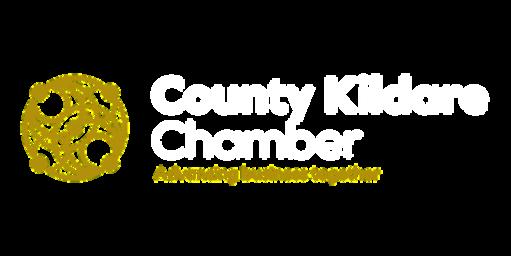
County Kildare Chamber
Naas Town Centre, Sallins Road, Naas, Co. Kildare W91 KV4H 045 894 074 ¦ info@countykildarechamber.ie
